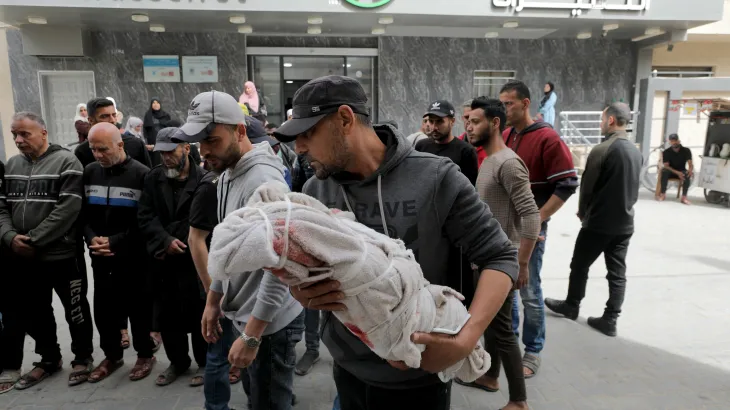
As of April 30, 2025, Israel’s total blockade of Gaza has reached its 60th day, exacerbating an already dire humanitarian crisis. The blockade, which began on March 2, has halted the entry of food, fuel, and aid, leading to severe shortages and escalating hunger among Gaza’s 2.2 million residents. The World Food Programme reports that food prices have surged by up to 1,000%, and all 25 community bakeries have ceased operations due to lack of supplies.
In the past 24 hours, Israeli airstrikes have intensified, with an attack on a building in Nuseirat killing at least eight people. Residents described the bombardment as akin to an “earthquake.” Overall, at least 35 individuals have been killed across Gaza during this period, according to Gaza’s Health Ministry.
Simultaneously, the International Court of Justice (ICJ) is conducting hearings on Israel’s obligations under international law concerning the situation in Gaza. On the third day of proceedings, the United States and Hungary defended Israel’s actions, challenging the impartiality of the court and the United Nations.
The United Nations has expressed grave concerns over the humanitarian impact of the blockade. Philippe Lazzarini, head of the UN agency for Palestinian refugees (UNRWA), stated that “Gaza has become a land of desperation,” highlighting the man-made nature of the unfolding famine.
Human rights organizations and UN officials have condemned the blockade as a violation of international law. Volker Turk, the UN High Commissioner for Human Rights, emphasized that sieges endangering civilian lives by depriving them of essential goods are prohibited under international humanitarian law.
The situation in Gaza continues to deteriorate, with widespread displacement, malnutrition, and a collapsing healthcare system. Aid agencies warn that without immediate intervention, the humanitarian crisis will further escalate, endangering countless lives
Source: Al Jazeera



